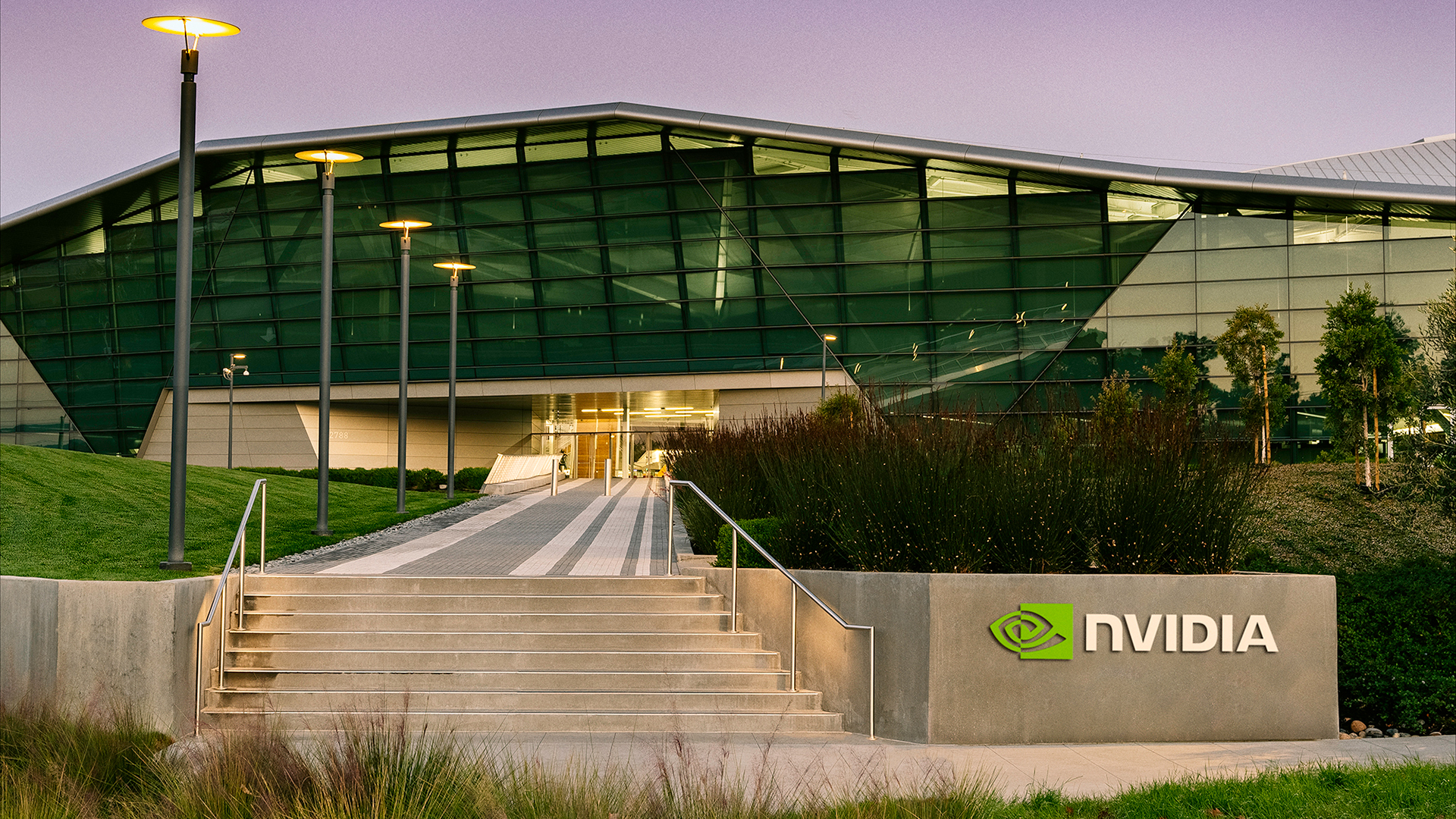Nvidia: Stronger Restrictions Against China Could Hurt American Companies
Nvidia warns about possibility of stronger restrictions against Chinese AI and HPC sectors.

Nvidia Corp. has voiced concerns that further tightening of restrictions against Chinese artificial intelligence and supercomputer sectors will cause long-term damaging effects on American chip developers in general. While the company remains optimistic about its immediate financial prospects, it reminded that 20 to 25% of its datacenter revenue comes from China, notes DigiTimes.
"Over the long term, restrictions prohibiting the sale of our data center GPUs to China, if implemented, will result in a permanent loss of an opportunity for the U.S. industry to compete and lead in one of the world's largest markets," said Colette Kress, chief financial officer of Nvidia, at the most recent earnings call with analysts and investors (via SeekingAlpha).
Export rules imposed by the U.S. government last year prohibit shipments of AI and HPC chips that enable supercomputers with the performance of over 100 FP64 PetaFLOPS or over 200 FP32 PetaFLOPS within 41,600 cubic feet (1178 cubic meters) to be shipped to China without export license. Furthermore, the supercomputer cannot have a throughput of more than 600 GB/s. The U.S. administration is reportedly considering further curbs against Chinese high-tech sectors, this time focusing on AI-oriented hardware.
To comply with the new export rules, Nvidia introduced cut-down versions of its A100 and H100 compute GPUs for China, dubbed A800 and H800. The company believes that the curbs meet their goals and restricts China from building more or less energy-efficient supercomputers using processors from the U.S.
"We believe the current regulation is achieving the intended results," the CFO said.
Even if new restrictions are imposed overnight, they are not going to hurt Nvidia immediately.
"Given the strength of demand for our products worldwide, we do not anticipate that additional export restrictions on our data center GPUs, if adopted, would have an immediate material impact to our financial results," Kress said.
Stay On the Cutting Edge: Get the Tom's Hardware Newsletter
Get Tom's Hardware's best news and in-depth reviews, straight to your inbox.
In a proactive move, Jensen Huang, chief executive of Nvidia, collaborated with top executives from companies like Intel and Qualcomm to warn the U.S. government that escalating export controls could hurt their sales and advocate for moderation of export rules.

Anton Shilov is a contributing writer at Tom’s Hardware. Over the past couple of decades, he has covered everything from CPUs and GPUs to supercomputers and from modern process technologies and latest fab tools to high-tech industry trends.
-
ekio Yeah poor Ngreedia.Reply
Because of that, they are only very very very very rich 😔 where is the poor lost fifth very 🥹 ????
Bad bad government preventing their business!! -
brandonjclark Some things are more important than profit. SOME people will never agree to that.Reply -
bit_user Nvidia should be careful what it complains about. China's GPU & AI chip makers will eventually hurt Nvidia, at their current pace of development.Reply
Besides, Nvidia is the absolute last company anyone is going to have sympathy for, right now. -
Co BIY Makes sense for Nvidia to speak up. They will be among those worst effected. Trade Wars and Cold Wars have casualties.Reply
That they complain should have no effect on the policy. -
steve15180 if by hurt, you mean we'll only sell $20 billion instead of their current $25 billion, they're probably right. While they're acting like they won't survive the revenue cut, I don't think the CEO will actually notice. Besides, he'll probably lay off enough low level employees to make up the slack.Reply